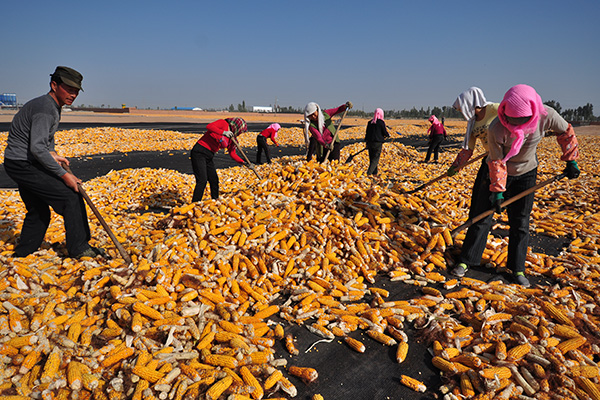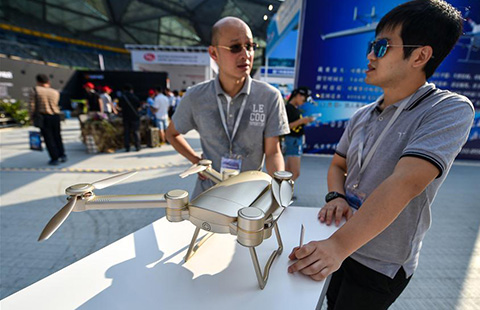Linze corn seed venture grows into a thriving business
By Li Yang and Xue Chaohua (China Daily) Updated: 2015-11-23 07:48
 |
|
Linze county nestles at the foot of the Qilian mountains range and has been a grain production center since ancient times. [Photo provided to China Daily] |
Between the Gobi Desert in the north and the Qinghai-Tibet Plateau in the south, this fertile region is nurtured by snow water from the mountains and is ideal for cultivating corn seed.
Indeed, the spread of corn as a major Chinese crop originated from the Hexi Corridor which includes Linze.
"Grain seed is of vital importance to national food security," Shen Yulu, deputy director of the government information office in Zhangye, a prefecture-level city in Gansu province, said.
Land reform in the countryside has played a major role in safeguarding that security.
Small plots of farmland have been merged as Linze modernizes its family-based corn seed industry into a corporate business.
Already there are 14 large-scale corn seed companies in the area, operating out of an agricultural park.
They all use high-tech equipment imported from Europe and the United States.
Originseed is the largest. Set up in 1998, the company now has a 124,000-square-meter seed processing center and rents 3,000 hectares of land from local farmers, who cultivate the crops.
Last year, Originseed sold 28 million kilograms of 40 different types of corn seed, reaping in sales revenue of 226 million yuan ($35 million).
Those seeds ended up being planted across not only China, but also Russia and Central Asian countries.
"Linze has excellent conditions for planting corn," Qi Xin, production department manager at Originseed, said. "Our presence in Linze combines research and development with those conditions."
The company is part of one of China's leading agricultural biotechnology groups, Origin Aritech, which specializes in crop seed cultivation and genetics.
"The Chinese government regards corn seed breeding as a pillar industry for agriculture, and gives strong support to enterprises," Qi said.
Expanding the corn seed business is crucial, according to Shen at the Zhangye government information office.
"Planting corn saves more water than planting rice and wheat," Shen said.
"As the snow water from Qilian mountains becomes less and less, Zhangye has no choice but to introduce advanced technology to promote modern agriculture."
Last year, the county government invested 80 million yuan in a 20,000-square-meter corn seed production technology service center to help farmers and seed cultivating companies.
In 2014, Linze had 20,000 hectares of corn fields and produced 150 million kilograms of seed, which was 13 percent of the market in China.
- Ifull's project mushrooms
- Online player Sport8 moves into soccer sector
- NBA team courts Chinese investors for new arena
- Baby steps helping Mia.com to boom
- Investment in soccer industry increasing in China
- Top 10 important auto events in 2015
- Aging China gives rise to new business opportunities
- ASEAN Economic Community: A project in progress

















